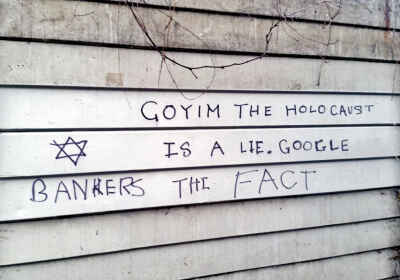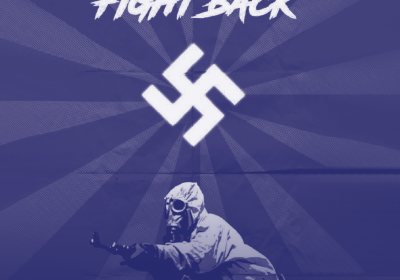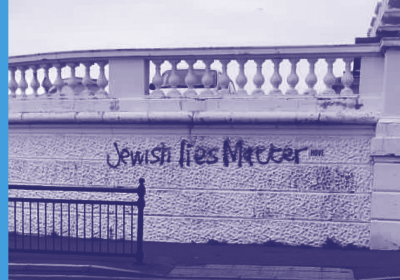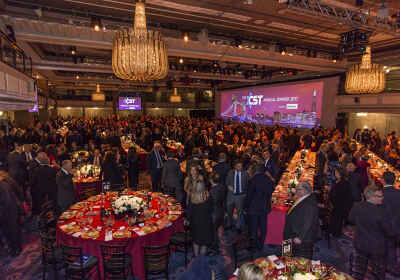Search Results for '100%depositbonusbetting sites(liทe@ruled8s).svx'
The pass over from antisemitism to anti-Zionism: and back again
24 April 2014
This year's Pesach coincided with antisemitic events in the USA, the Ukraine, Venezuela and the Palestinian Authority. Four examples, from four continents, all different: yet inhabiting the same antisemitic ballpark. Taken together, they show how antisemitism and anti-Zionism pass over, one into the other:…

CST Antisemitic Incidents Report January - June 2016 published today
4 August 2016
The first six months of 2016 saw an 11 per cent increase in antisemitic hate incidents recorded in the UK compared to the same period in 2015, according to CST's Antisemitic Incident Report January-June 2016, published today.

Hate Fuel: the hidden online world fuelling far right terror
11 June 2020
A new report from CST reveals the shocking extent of terror incitement and anti-Jewish hate created and circulated by right wing extremists on social media. Titled Hate Fuel: the hidden online world fuelling far right terror, the contents of this report are of essential importance in understanding the growing danger of far right terrorism against British Jews.
Antisemitic Incidents Report 2017
1 February 2018
CST's 2017 Antisemitic Incidents Report, published today, shows that CST recorded 1,382 antisemitic incidents nationwide in 2017, the highest total CST has ever recorded for a calendar year.
Key UK findings of EU antisemitism survey
14 December 2018
Previously, CST blog carried overall European findings from the European Union Agency for Fundamental Rights (FRA) survey, ’Experiences and perceptions of antisemitism - Second survey on discrimination and hate crime against Jews in the EU’. This survey, conducted by London’s Institute for Jewish Policy Research (JPR) and Ipsos MORI, repeats and expands upon the Agency’s landmark 2012 survey on how Jews in eight European countries, including Britain, experience and perceive antisemitism. This new 2018 survey covers 12 European countries (97% of the EU’s Jewish population), including Britain. It is the largest ever study of its kind worldwide and should, like its predecessor, be a key tool in the understanding of modern antisemitism. JPR stress the report’s methodology to ensure that it did not “over-sample Jews with a particular interest in antisemitism” and methodological details are on pp. 73-78 of the report.
Record number of antisemitic hate incidents in UK in 2016
2 February 2017
CST's Antisemitic Incidents Report 2016, published today, shows that there was a record number of antisemitic hate incidents recorded by CST in the UK in 2016.
Lashkar-e-Taiba's Jewish problem
26 March 2010
Introduction For years, Lashkar-e-Taiba (LeT) has increasingly demonstrated violent global ambitions beyond the South Asian theatre; however, the antisemitic component to its target selection has only more recently been demonstrated. LeTs infamous information gatherer, David Coleman Headley, pleaded guilty in the United States in March 2010 to all twelve charges …

CST ANTISEMITIC INCIDENTS REPORT 2020 PUBLISHED TODAY
11 February 2021
CST’s Antisemitic Incidents Report 2020, published today, shows that last year CST recorded 1,668 antisemitic incidents across the UK. This is an 8% fall from the 1,813 incidents recorded in 2019 but is still the third-highest number of incidents CST has ever recorded in a calendar year. There were 1,690 antisemitic incidents recorded in 2018, 1,420 in June 2017 and 1,275 antisemitic incidents in 2016.

CST Annual Dinner 2017
2 March 2017
The Home Secretary, Amber Rudd MP, was the guest of honour at CST’s 2017 Annual Dinner in central London last night. The dinner is CST’s main fundraising event of the year. It was sponsored by Deloitte and attended by around 1,000 guests, including donors, politicians, Police officers, Jewish community partners and other supporters of CST’s work protecting our Jewish community.

Reactions to Engine of Hate report
15 August 2019
The angry reactions to CST’s recent report, Engine of Hate: The online networks behind the Labour Party’s antisemitism crisis, show exactly why such research is necessary. The reactions denied what the report said, whilst demonstrating the behaviours that caused it to be written in the first place. Some might call that ironic. Attacks have misrepresented what the report actually says. Similarly, CST has also been attacked and misrepresented. CST expected these reactions. Nevertheless, the misrepresentations are worth noting and exposing. Unfortunately, doing so requires some length, so as the points can be explicitly demonstrated.